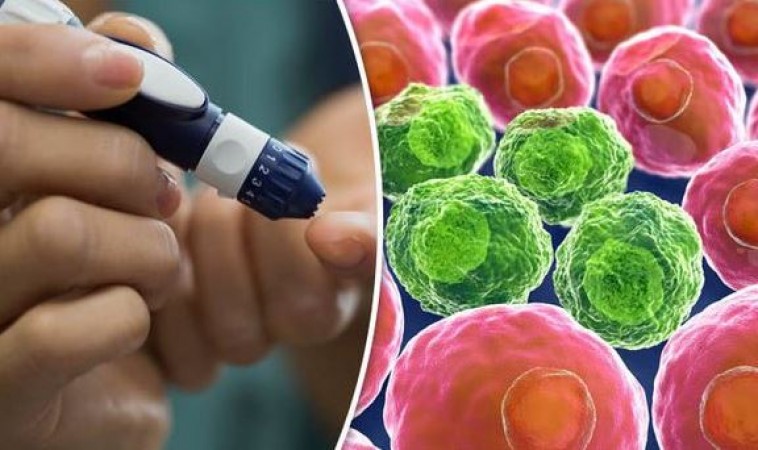
Multiple myeloma is a type of blood cancer that affects plasma cells in the body. Diabetes, on the other hand, is a chronic metabolic disorder characterized by high blood sugar levels. While these two conditions may seem unrelated, a recent study published in the Blood Advances Journal has shed light on a potential connection between them. The study suggests that multiple myeloma patients with diabetes may have a higher risk of experiencing a more aggressive form of blood cancer and a lower likelihood of survival compared to those without diabetes. This article explores the findings of the study and its implications.
The Study:
Researchers conducted a comprehensive study that analyzed electronic health records of 5,383 multiple myeloma patients. Among this group, 15% of the patients also had diabetes. The study, led by Dr. Urvi Shah, a specialist in multiple myeloma at Memorial Sloan Kettering Cancer Center, aimed to investigate the survival rates of multiple myeloma patients with and without diabetes.
Key Findings:
The study revealed several significant findings:
Lower Survival Rates: Multiple myeloma patients with diabetes had lower survival rates compared to those without diabetes. This suggests that diabetes may be a factor that negatively impacts the prognosis of multiple myeloma.
Ethnic Disparities: The study also highlighted ethnic disparities in the prevalence of diabetes among multiple myeloma patients. Among the study participants, individuals of non-white ethnicity were more likely to have diabetes. This raised questions about whether these differences might influence health outcomes in patients with both conditions.
Age Discrepancies: Patients with diabetes who also had multiple myeloma tended to be younger than those without diabetes. This age difference could potentially play a role in the progression and management of these coexisting conditions.
Lifestyle Factors: Lifestyle factors such as tobacco use and excessive alcohol consumption were identified as potential risk factors for both multiple myeloma and diabetes. These factors may contribute to the increased prevalence of both conditions among certain populations.
Blood Cancer in India:
India ranks third in terms of reported cases of blood cancer, following the United States and China. This type of cancer claims the lives of over 70,000 people in India each year, with nearly 100,000 new cases diagnosed annually. While the number of reported cases is lower than in Western countries, the mortality rate in India is significantly higher. Several factors contribute to this situation, including limited access to quality healthcare, especially in rural areas, and a lack of awareness and education about blood cancers.
Early Symptoms of Blood Cancer:
Blood cancers like multiple myeloma can be challenging to detect in their early stages. However, some common symptoms that may indicate the presence of blood cancer include:
Frequent infections
Persistent fatigue
Unexplained skin discoloration or bruising
Sudden weight loss
Excessive coldness
Bone pain
Difficulty breathing
Urinary difficulties
Causes and Risk Factors:
Multiple factors can increase the risk of developing blood cancer:
Tobacco Use: Smoking and tobacco consumption have been linked to an increased risk of various cancers, including blood cancers.
Alcohol Consumption: Excessive alcohol consumption has also been associated with a higher risk of blood cancers.
Radiation Exposure: Prolonged exposure to radiation and harmful chemicals can increase the likelihood of developing blood cancer.
Family History: A family history of blood cancer or other cancers can elevate an individual's risk.
The study's findings suggest that there may be a connection between diabetes and the prognosis of multiple myeloma. Patients with both conditions may face a more aggressive form of blood cancer and a decreased likelihood of survival. Additionally, ethnic and age-related disparities were observed among patients with diabetes and multiple myeloma, warranting further research into the reasons behind these differences.
It is essential to raise awareness about blood cancers, particularly in countries like India, where these cancers pose a significant health challenge. Early detection and timely treatment remain crucial for improving outcomes for multiple myeloma patients. Furthermore, efforts to address lifestyle factors such as tobacco use and alcohol consumption may help reduce the risk of both diabetes and blood cancers.
Continued research in this area is necessary to better understand the relationship between multiple myeloma and diabetes, identify potential mechanisms involved, and develop targeted interventions to improve the prognosis for patients facing these dual health challenges.
How Taapsee Overcame Claustrophobia Post-'Thappad'
Mr. Muruganantham's Invention and 'PadMan's' Message
How to Avoid the Damaging Effects of Ultra-Processed Foods on Your Health